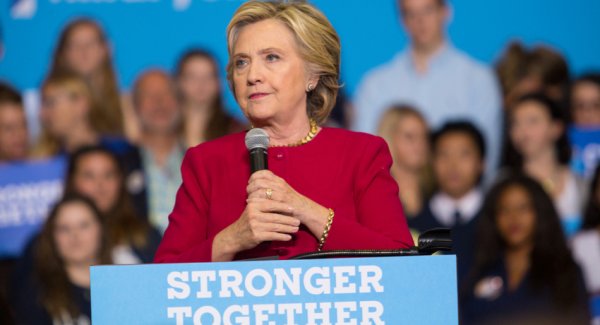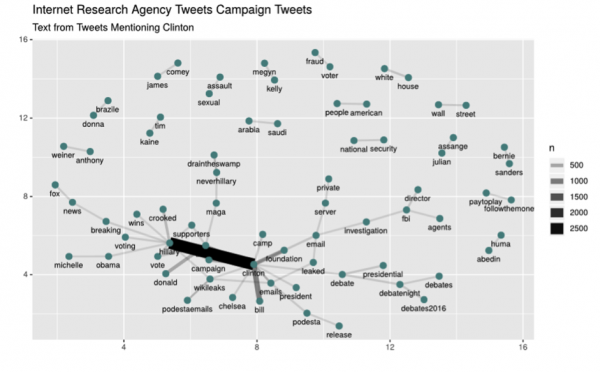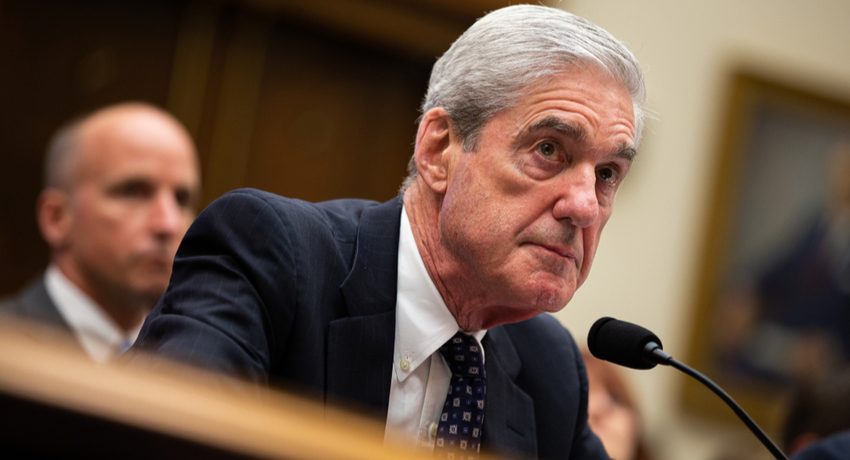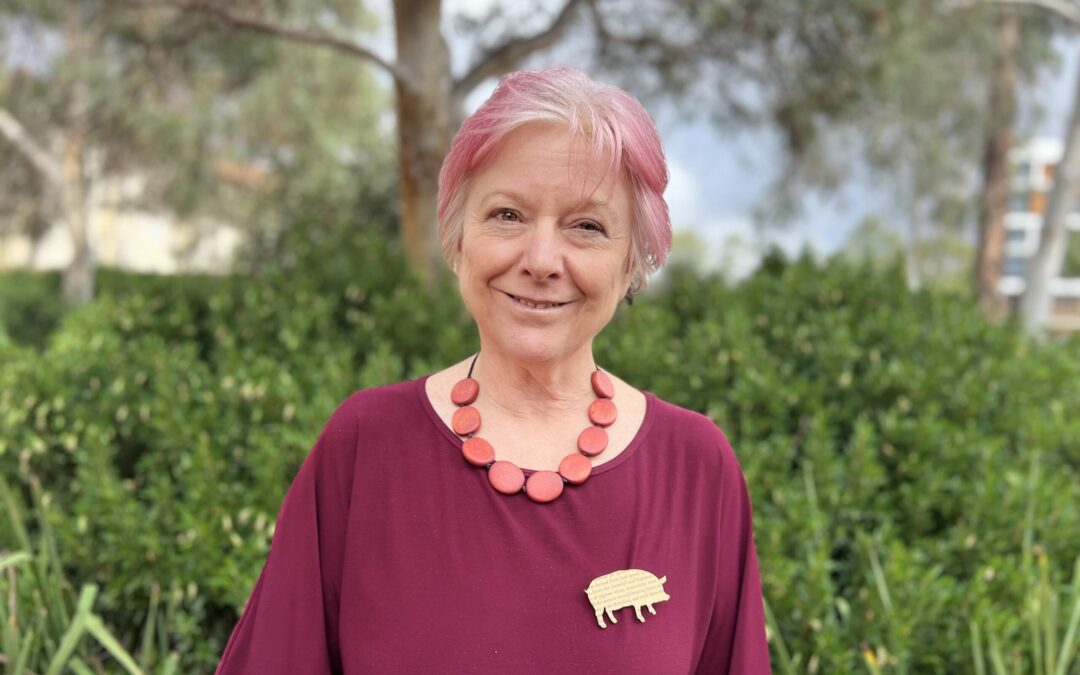Robert Mueller’s much anticipated testimony emphasised a point that he made in his report and press conference upon conclusion of his term as Special Counsel. The report opened with the observation, “The Russian government interfered in the 2016 presidential election in sweeping and systematic fashion”.
It was the first point he returned to in his opening statement before the House Judiciary Committee, and during the testimony before the House Permanent Select Committee on Intelligence, he declared that Russian interference is continuing, “They’re doing it as we sit here”. What’s more, he expects that they will interfere again in the 2020 campaign, posing a significant threat to American politics.
It is important to understand that the aims of an operation are not reducible to the specific messaging utilised, indeed Russian operations often utilise contradictory claims and the specific messaging will evolve throughout an operation depending on the response received. Although the targets of Russia’s active measures or information warfare campaign against the US aimed at undermining its governing capacity, they had a primary aim of subverting Clinton’s chances and a secondary aim of electing Donald Trump. The Office of Special Counsel report revealed an internal document from Russia’s Internet Research Agency (IRA) – also known as a “troll farm” – issuing instructions to workers, “Main idea: Use any opportunity to criticize Hillary [Clinton] and the rest (except Sanders and Trump – we support them)”.

That statement is particularly interesting considering that today some of the most vocal voices about the Russian threat amongst the candidates running for the Democratic nomination are women, particularly Senator Warren and Senator Harris, both of whom appear to have been targeted by online information operations. To be fair, all the Democratic candidates have spoken out against Russia’s interference in the 2016 election – including Sanders who Russia had favoured in 2016.
“When people push boundaries too far, it’s not because they are strong but because they are weak. But maybe weakness is not the worst quality for a woman.”
The origins of Putin’s animus towards Clinton stemmed in part from policy decisions she made during her tenure as Secretary of State but there are indications that the issues were also personal. After Clinton had likened Putin’s annexation of Crimea to Hitler’s tactics, Putin responded in an interview, “It’s better not to argue with women. But Ms. Clinton has never been too graceful in her statements. Still, we always met afterwards and had cordial conversations at various international events. I think even in this case we could reach an agreement. When people push boundaries too far, it’s not because they are strong but because they are weak. But maybe weakness is not the worst quality for a woman”. Whatever Putin may really believe, and this statement may have been more strategic than sincere, he put forth an attack on Clinton essentialising womanhood as weakness.
Whatever stereotypes one might have, equating womanhood with feminism and more cooperative and less assertive foreign policies (and masculinity with confrontation) does not hold up when considering the candidates for the presidency in 2016 and 2020. Clinton did not mince words in her attack on the actions of the Russian government. Calling out the childish sexist response, she said, “I have a lot of experience with people acting like that…. Go back to elementary school. I have seen all of that, so I’m not impressed by it”.
Contrary to efforts to minimise the actions of the Russian interference in the 2016 by members of the current administration and their supporters online, this interference was significant and poses an ongoing threat to American democracy
Contrary to efforts to minimise the actions of the Russian interference in the 2016 by members of the current administration and their supporters online, this interference was significant and poses an ongoing threat to American democracy. Minimally, the hacked emails were the material source for the claims that Clinton was “crooked,” the derisive nickname he used during the campaign.
The appellation of ‘crooked’ to Clinton’s first name had two effects: 1) by diminishing her status by referring to her only by her first name (Hillary) whereas Trump was always ‘Trump’ and 2) any variety of attacks were refracted through the prism of a corrupt and deceptive politician only focused on her self-interest and advancement. This applied to her directly and all those in her orbit.
The depiction of Clinton’s moral weakness comes through clear in the tweets from Twitter, identified as authored by agents of the IRA:

What made the Russian interference efforts so effective was the fact that Trump or members of his team would use Russian active measures against his opponents
What made the Russian interference efforts so effective was the fact that Trump or members of his team would use Russian active measures against his opponents. These efforts were not incidental – Trump mentioned WikiLeaks 145 times during the last month of the 2016 campaign.
One curious example included a comment in a speech he gave on 24 October during which he claimed that John Podesta, Clinton’s campaign manager had ‘rigged’ the polls to make it look like Clinton was winning the campaign. The origins of this claim come from a dump of Podesta emails by Wikileaks which occurred the day before the speech. The earliest appearance of the claim appears to be from a tweet produced by the account IAmVerySilky (since suspended) at 9:58 Eastern Daylight Time (US) on 23 October 2016. This account had parsed every dump of Wikileaks into specific narratives. The claim was that, at the behest of John Podesta (acting on Clinton’s orders or at her behest), had forced private pollsters to oversample Democrats leading to errant results in the polls.
The problems with the claim are numerous: Podesta did not send the email; it was from colleagues working in Obama’s 2008 transition rather than any work done in 2016 or with Clinton; oversampling is a legitimate analytical tool to study minority segments of the population which would otherwise be too small to capture with a standard population probability sample; the emails concern a pollster paid by the transition team rather than an a coercive action targeting media polling firms; and so forth.

Source: https://wikileaks.org/podesta-emails/emailid/26551
That same evening at 11:50pm, the claim made its way to the blog Zerohedge, which tends to promote Kremlin propaganda lines. The next day it featured in a speech Trump gave in St Augustine, Florida.
In under a day and a half, a story was fabricated, no part of which had any factual predicate, moving from a Twitter account which played a key role in weaponising the WikiLeaks releases to Trump’s speech
In under a day and a half, a story was fabricated, no part of which had any factual predicate, moving from a Twitter account which played a key role in weaponising the WikiLeaks releases to Trump’s speech. What makes this particularly interesting is that, while factual statements are unproblematically repeated as multiple people would have access to the underlying evidence, completely fictitious claims normally require coordination. It is hard to believe that several persons would independently come up with an identical work of fiction.
After the narrow grounds on which members of the Trump team avoided prosecution stemming from their actions in 2016 – namely that they did not understand that accepting help from a foreign power constituted a crime and the value of the help could not be easily assessed – even if Trump were to avoid a legal price, the political price for accepting such help might increase substantially in 2020.




